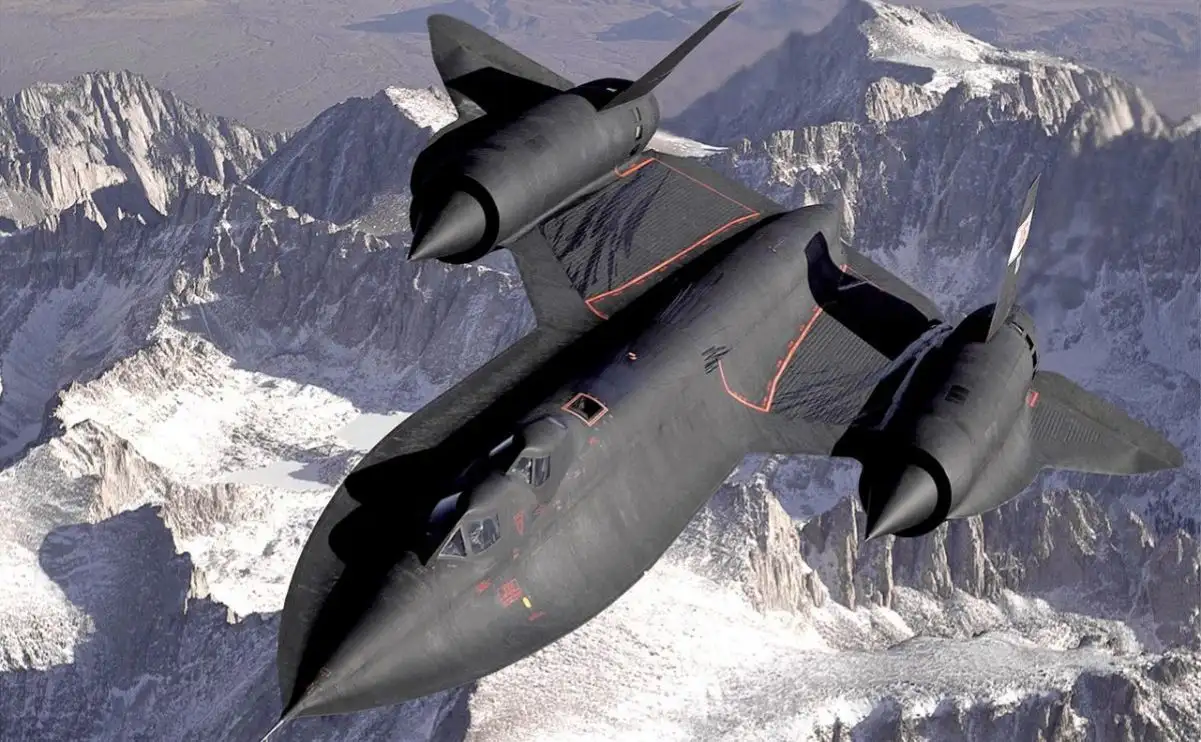SR-71 Mach 3 strategic reconnaissance aircraft
The Lockheed A-12 and YF-12A aircraft served as the basis for the development of the SR-71, also referred to as the “Blackbird” or long-range, advanced strategic reconnaissance aircraft. The 4200th (later 9th) Strategic Reconnaissance Wing at Beale Air Force Base, California, received the first SR-71 to begin service in January 1966. The first SR-71 flight occurred on December 22, 1964. On January 26, 1990, the US Air Force (USAF) retired its SR-71 fleet.
For almost 24 years, the SR-71 held the record for being the fastest and highest-flying operational aircraft in the world. It could survey 100,000 square miles of the Earth’s surface per hour from 80,000 feet.
SR-71 Lost at Mach 3
‘Decelling, after an extremely valuable take leg over Hanoi, I encountered an emergency and landed in Thailand. Next day, my Recovery Team Crew Chief cornered me… They were most anxious to get this TAKE to the processing center, and no transport is available from Thailand. They told me: “Your malfunction is fixed, but you are legally required to have a NAV SET, and I can provide that for launch in about an hour. HOWEVER, I guarantee the NAV SET will fail about half an hour after level-off speed. Can you get this back to Kadena for them?”
‘I checked the forecast landing weather – CLEAR! I can do this! NAV SET failure degrades Primary Instrument Panels but even if primary FAIL, I’ve got the BACKUP system (called the FRS) – no sweat!!
‘We went and sure enough, 20 minutes after leveling off at speed (locked on the heading home), NAV SET failed. But Primary Flight Instruments also failed. Shortly thereafter, all flight instruments OFF FLAGS POPPED UP. Guess what!?!?! I’m on a partial panel at Mach 3—LOST!

‘We checked OCEAN STATION DELTA and were about 60 nm left of course. I dropped the right wing 5 degrees for a count of 10 and reentered the needle. Start decel backset distance was 230 nm. Kadena TACAN locked on at 235 nm within 1 degree of inbound track. HOME FREE!
‘So, when you hear that old cliche, you ain’t been lost till you’re lost at Mach 3.’
Partial panel
But what does the term “partial panel” refer to?
Former SR-71 Blackbird pilot Stormy Boudreaux answers the question;
‘The term partial panel refers to instrument flying while the attitude indicator and heading indicator are unserviceable. Without the heading indicator you have to rely on the “whiskey compass” – so named, because it floats in a container of alcohol—for your heading and looking out the window for your attitude. However, the whiskey compass will tell you the heading only when the wings are level or very nearly level.
“The pilot has to time his turn because establishing a turn of more than a few degrees of bank causes the floating magnetic card to hang up and freeze inside of the instrument case during the turn until the turn is complete—only after you roll out of your bank and the compass card settles down can you find out your new heading.
‘So you start your turn and maintain the turn for a predetermined number of minutes or seconds, then roll out to wings level based on time—you let the card stabilize (15-30 seconds) while it sloshes around figuring out where north is again and finally you read your new heading.’
Turning to the new heading as accurately and quickly as possible
Boudreaux concludes;
‘You prefer to turn to the new heading as accurately and quickly as possible—without rolling out and checking too many times because you are moving at 30 miles per minute. A large deviation from the desired heading means you are going in the wrong direction in a hell of a hurry! In this instance, weather was not a factor for visually determining his attitude and bank angle. If this happens in the weather, it is an extremely serious emergency.’
Check out Habubrats SR-71‘s Twitter profile, SR71 Habubrats’s Instagram profile, and Born into the Wilde Blue Yonder Habubrats‘s Facebook page for further Blackbird photos and stories.
Photo by Lockheed Martin, U.S. Air Force and NASA

